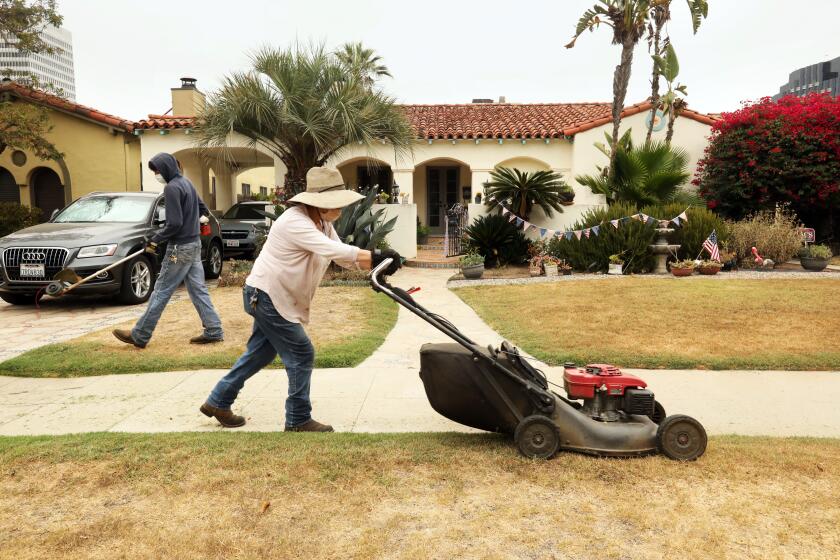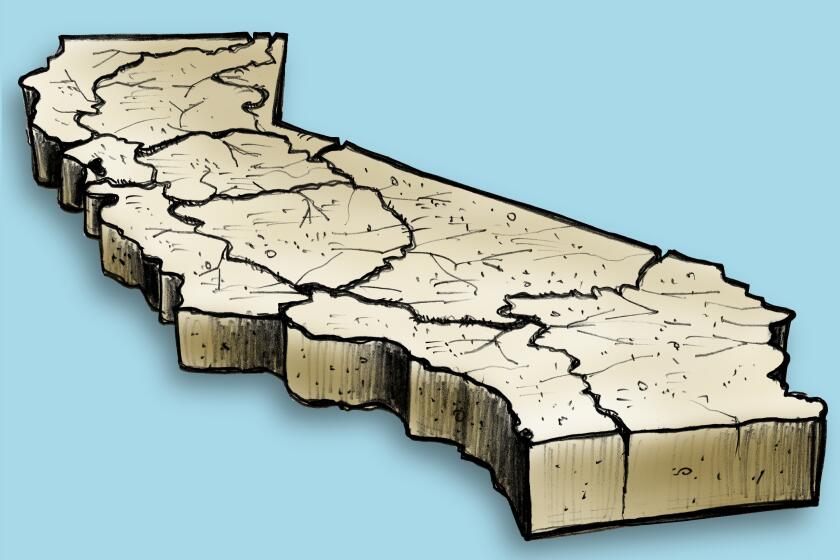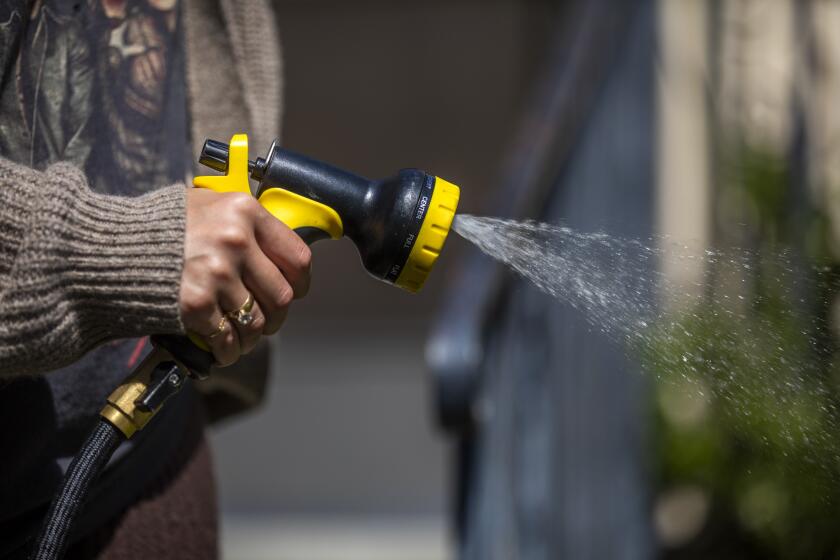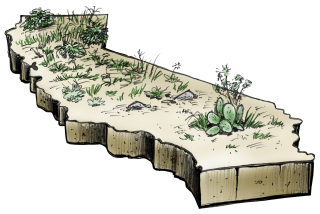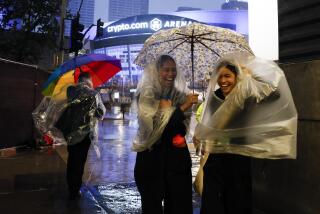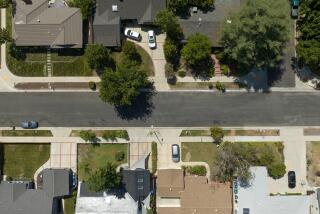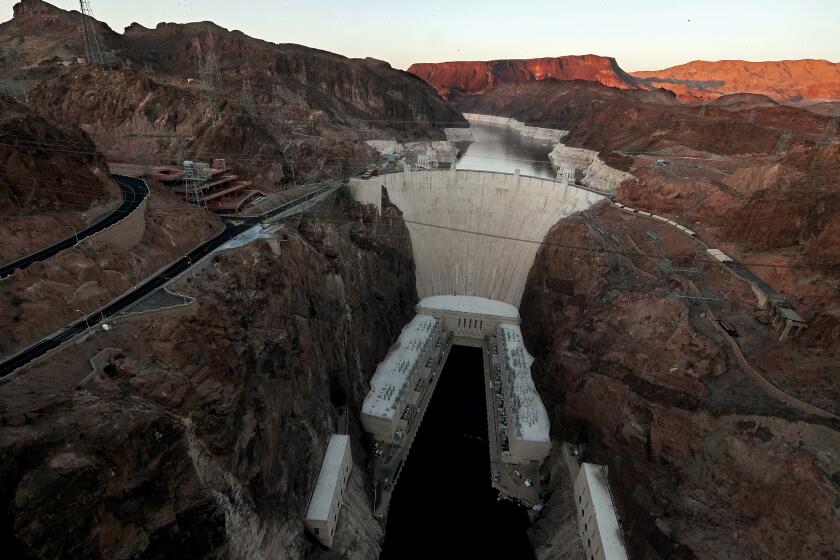L.A. residents saving more water but face bigger test as heat intensifies
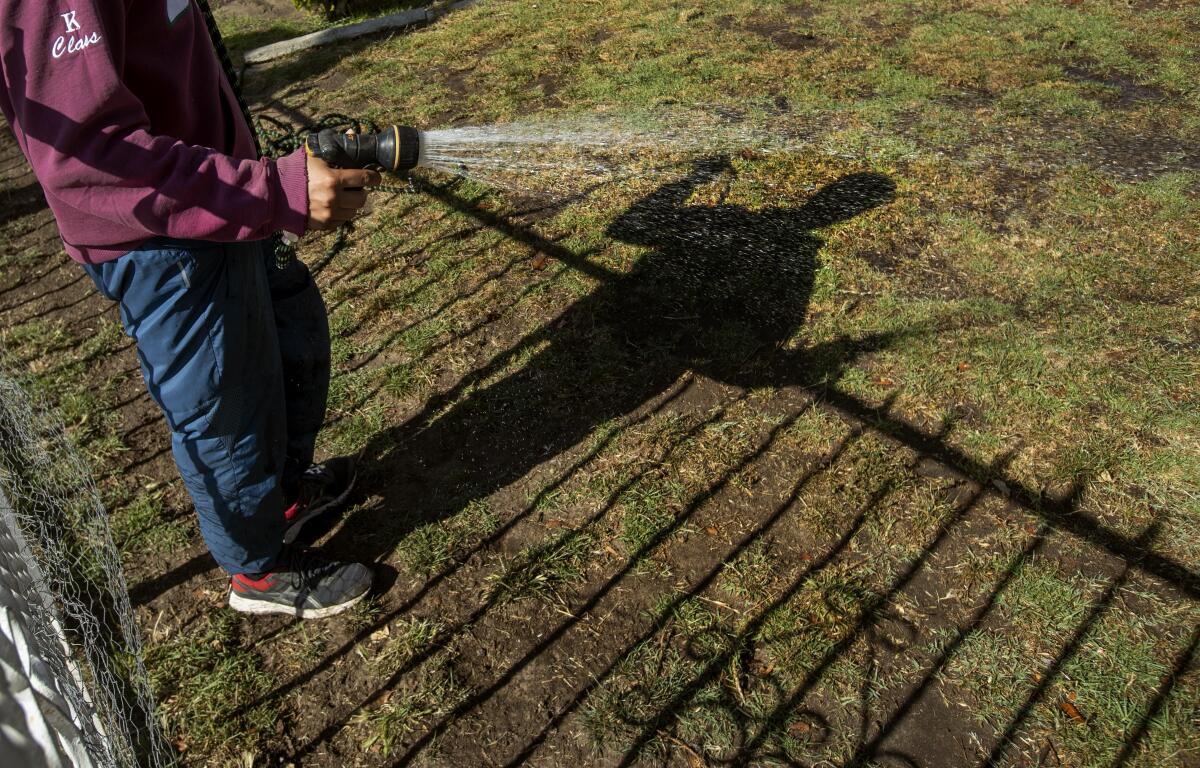
In another promising sign that residents are taking calls for conservation to heart, Angelenos in July achieved an 11% reduction in water use — more than any other July on record, officials announced this week.
The report from the Los Angeles Department of Water and Power comes as drought continues to sap supplies across the region. But while July’s conservation surpassed the record 9% reduction achieved in L.A. in June, officials urged residents to keep going.
“It’s clear that our customers have made conservation a way of life and are doing things like taking shorter showers, watering only on designated days of the week and taking advantage of our water conservation rebates to save water and save money,” DWP general manager and chief engineer Martin Adams said in a statement. “But our job is not done. We are now entering one of the hottest months of the summer season and ask that our customers continue to save every drop.”
Demand for water decreased 9% in June compared with the same month last year, but some Angelenos are more on board with the restrictions than others.
Indeed, long range forecasts indicate that the hottest, driest days of summer are yet to come, and forecasters say a stubborn La Niña climate pattern may hang on into 2023. La Niña is often associated with drier conditions in the Southwest.
Already, more than 97% of California is under severe, extreme or exceptional drought, the three worst categories under the U.S. Drought Monitor. The state’s largest reservoir, Lake Shasta, is at 37% capacity.
The DWP’s latest report marks the second month under its new water restrictions, which went into effect June 1 and placed nearly 4 million Angelenos on two-day-a-week outdoor watering restrictions. Residents with odd-numbered addresses can water on Mondays and Fridays; those with even numbered addresses can water on Thursdays and Sundays.
The restrictions came after the region’s massive water wholesaler, the Metropolitan Water District of Southern California, declared a water shortage emergency triggered by extremely limited supplies. The State Water Project, which delivers water from Northern California to farmlands and cities to the south, slashed its allocation to just 5% this year.
“We are seeing conditions unlike anything we have seen before,” Adel Hagekhalil, the MWD’s general manager, said at the time. “We need serious demand reductions.”
The latest maps and charts on the California drought, including water usage, conservation and reservoir levels.
DWP officials said there are other signs of progress, including a significant increase in water waste reports. The department’s water conservation response unit received more than 2,000 reports last month compared with about 1,860 in June, officials said.
Some of the common complaints are water running off of lawns and into the street because of excessive irrigation or people watering on the wrong days, officials said.
“The increase in water waste complaints we have received shows people are conscientious when it comes to water waste that they see in their communities, and we are grateful to them for being our eyes and ears because we can’t do it alone,” Anselmo Collins, senior assistant general manager of the water system for the DWP, said in a statement.
California urban water use fell 7.6% in June when compared with the same month in 2020, with the Bay Area cutting back the most.
But while the DWP posted positive savings, data released by the state last week showed Southern Californians are still conserving less than their neighbors to the north.
The latest findings from the State Water Resources Control Board showed the South Coast Hydrologic Region, which is home to Los Angeles, reduced water use 5.9% in June, less than half the amount in the San Francisco Bay area, which saved 12.6%. The numbers are compared to the same month in 2020, the year the current drought began. July data were not yet available.
The South Coast number was among the lowest savings in the state, followed only by the Central Coast and Tulare Lake hydrologic regions, which saved 5.5% and 4.7%, respectively.
Statewide cumulative savings since last July, when Gov. Gavin Newsom called on all Californians to voluntarily conserve 15%, were 7.7%.
More to Read
Sign up for Essential California
The most important California stories and recommendations in your inbox every morning.
You may occasionally receive promotional content from the Los Angeles Times.
